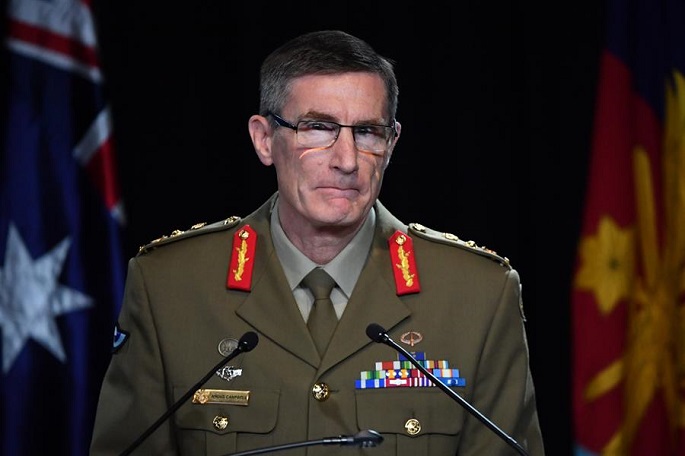Australian special forces unlawfully killed Afghan civilians: report
Published : 19 Nov 2020, 11:39
Australian special forces were allegedly involved in the unlawful killings of 39 people outside of combat operations during the Afghan conflict, a long-awaited report has found, reported EFE-EPA.
The Australian Defense Force (ADF) on Thursday released the report of a four-year inquiry led by Maj Gen Justice Paul Brereton into 57 incidents of alleged breaches of the laws of armed conflict committed by elite forces in Afghanistan between 2005 and 2016.
Brereton's inquiry found "credible information to substantiate 23 incidents of alleged unlawful killing of 39 people by 25 Australian Special Forces personnel, predominantly from the Special Air Service Regiment," ADF chief Angus Campbell announced at a press conference in Canberra.
Those alleged to have been killed unlawfully include "prisoners, farmers and other civilians."
The "shameful record," in which the majority of incidents occurred in 2012 and 2013, includes alleged instances of "blooding" in which new patrol members were coerced to shoot a prisoner to achieve the soldier's first kill, Campbell said.
"Throwdowns" such as weapons and radios were reportedly planted on the dead to support claims they were "enemy killed in action," he added.
None of the alleged unlawful killings were described as being in the "heat of battle," nor occurred in circumstances in which the intent of the perpetrator was unclear, confused or mistaken, the ADF chief said, adding that every person spoken to by the inquiry "thoroughly understood the Law of Armed Conflict and the Rules of Engagement under which they operated."
Campbell also described a "warrior culture" within the SAS that focused on "prestige, status and power" and "toxic competitiveness" that went unchecked.
Some patrols, he said, "took the law into their own hands" and "those who wished to speak up were allegedly discouraged, intimidated and discredited."
"To the people of Afghanistan, on behalf of the Australian Defense Force, I sincerely and unreservedly apologize for any wrong-doing by Australian soldiers," Campbell said, adding that he had spoken to his Afghan counterpart, Gen.Yasin Zia. He also apologized to the people of Australia.
The military chief said he accepted the inspector general’s findings and a plan was being developed to implement its 143 recommendations. He added that he will refer cases to the special office dedicated to investigating allegations of war crimes in Afghanistan, which was created last week by the Australian government.
Australia’s Defense Minister Linda Reynolds reiterated in a statement that an oversight panel reporting to her will provide assurance of Defense accountability, however she said she remains "proud of the men and women of the ADF who have served our nation" and that the findings "should not case a shadow on the vast majority whose contributions to the mission in Afghanistan were carried out to the highest standards."
The office of Afghan president Ashraf Ghani said earlier in a statement that Australian Prime Minister Scott Morrison called him and "expressed his deepest sorrow over the misconduct by some Australian troops in Afghanistan" and assured him "of the investigations and to ensuring justice."
Australia deployed up to 1,500 soldiers for combat operations between 2001 and 2014 in Afghanistan, which was considered the largest military contribution of a country outside of the North Atlantic Treaty Organization (NATO), and since then it has kept small military detachments in place, dedicated to training local soldiers.


